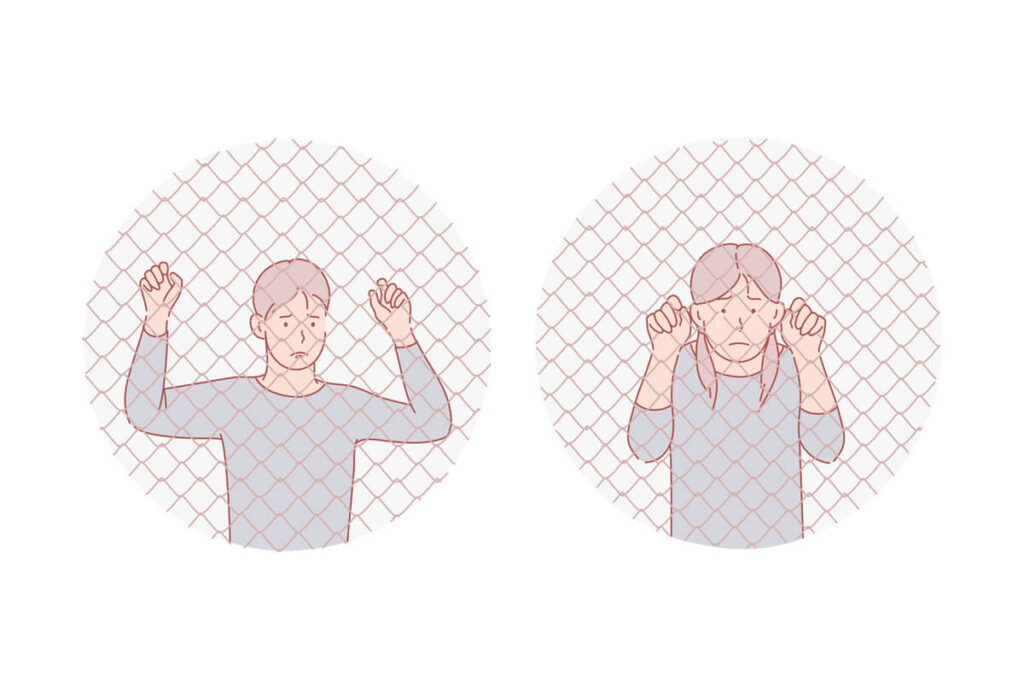September 3, 2022
Good morning. Every Saturday, we write about one specific right that we possess as citizens in our country. In today’s edition of “Know Your Rights”, we examine the rights of juvenile offenders in India.
KNOW YOUR RIGHTS – EDITION 55
Rights Of Juvenile Offenders

The controversial history associated with the juvenile justice system in the country is far from unknown. With the rise of juvenile crimes in India, we thought it was fitting to take a look at the laws that govern juvenile offenders and the rights they have at their disposal.
Before getting into that, let’s take a look at the definition of a juvenile. The word is derived from the Latin word juvenis which translates to ‘young.’ The Juvenile Justice (Care and Protection) Act, 2015 defines a ‘juvenile’ or ‘child’ as a person who has not yet completed the age of eighteen. Under this act, the term “child” is split into two categories; a child in conflict with the law (Section 13) and a child in need of care and protection (Section 14). A juvenile delinquent or offender falls under the first category.
In the late 18th century, a worldwide movement began to provide special treatment for juveniles following which the United Nations General Assembly adopted a Convention on the rights of a child in 1989. This was the first step implemented to safeguard juvenile rights as the Convention directed the Indian legislation to repeal the Juvenile Justice Act of 1986 which led to a new act, The Juvenile Justice (Care and Protection) Act, 2000.
The new act was made to ensure the best interest of juveniles by altering the yardstick against which they were tried and ensuring more leniency. However, the devastating incident of the Nirbhaya gang-rape case in Delhi (Mukesh & Anr vs State for NCT of Delhi and Ors) forced lawmakers to reconsider how minors were tried in the country.
The new act, The Juvenile Justice (Care and Protection) Act, 2015 dictated that a juvenile aged between 16 and 18 can be tried as an adult if the person has committed a heinous crime. The offender will be sent to the children’s court, and the maximum punishment for heinous crimes can surpass a sentence of 3 years. However, death penalty or life imprisonment cannot be awarded to a juvenile offender.
Juvenile offences are categorized into three broad categories namely, petty, serious and heinous. If the offence committed by a child falls under the petty category, the following measures will be taken:
- The child will be allowed to return home after properly advising him or her.
- The child will be instructed to perform community service as this will encourage the adoption of good values.
- Participation in group counselling and other such activities will be encouraged in order to facilitate rehabilitation.
- The child is to be released on probation if he exhibits good behaviour.
If the nature of the offence is more serious, the child will be sent to a special home for a period not exceeding 3 years. The child or his parents will be fined to prevent further crimes as a measure of deterrence.
The Juvenile Justice System in India functions on three main guidelines:
- Young offenders should not be tried in court, but rather corrected.
- They are not to be punished by the courts but they ought to be given an opportunity to reform.
- Trial for a child in conflict with the law should encourage non-penal treatment and be supported by group action agencies such as Observation Homes and Special Homes.
The law dictates a specific committee structure that is assigned to listen to juvenile law violations. This committee should consist of a presiding judge and two social workers, one of whom should be female. They comprise the board of directors. Under no circumstances are the board of directors allowed to regulate or operate a daily courthouse.
There are a few special procedures that the law establishes for juvenile offenders. Some of them include the following:
- Hearings are to be casual and strictly confidential.
- Offenders are to be closely monitored after which they are released from custody.
- The decision of the chief judge is final.
Additionally, juvenile offenders are awarded nine basic rights when they are being tried for crimes. These are:
- Right to have a lawyer
- Right to cross-examine witnesses
- Right to provide evidence to support their own case
- Right to remain silent
- Right to an appeal
- Right to a transcript of a trial
- Right to have fair and speedy trials
- Right to have no juries in juvenile cases
- Right to have parents and/or guardians present at hearings
In the case of juvenile offenders, the government is responsible for ensuring their rehabilitation. Juvenile justice boards in India are required to have a group of medical officers, adequately trained social activists, counsellors, and psychiatrists. Additionally, in order to protect the rights of the child, the Juvenile Justice Act states that the identity of the child should not be revealed to the media and that their photographs are not to be published anywhere. No newspaper or magazine is allowed to cover a report on an accused juvenile unless it is made in the interest of the child.
While there are sufficient laws to protect children accused of crimes in the justice system in the country, the rising cases of juvenile crimes need to be addressed. The root causes of the development of juvenile offenders should be looked into and curbed.

